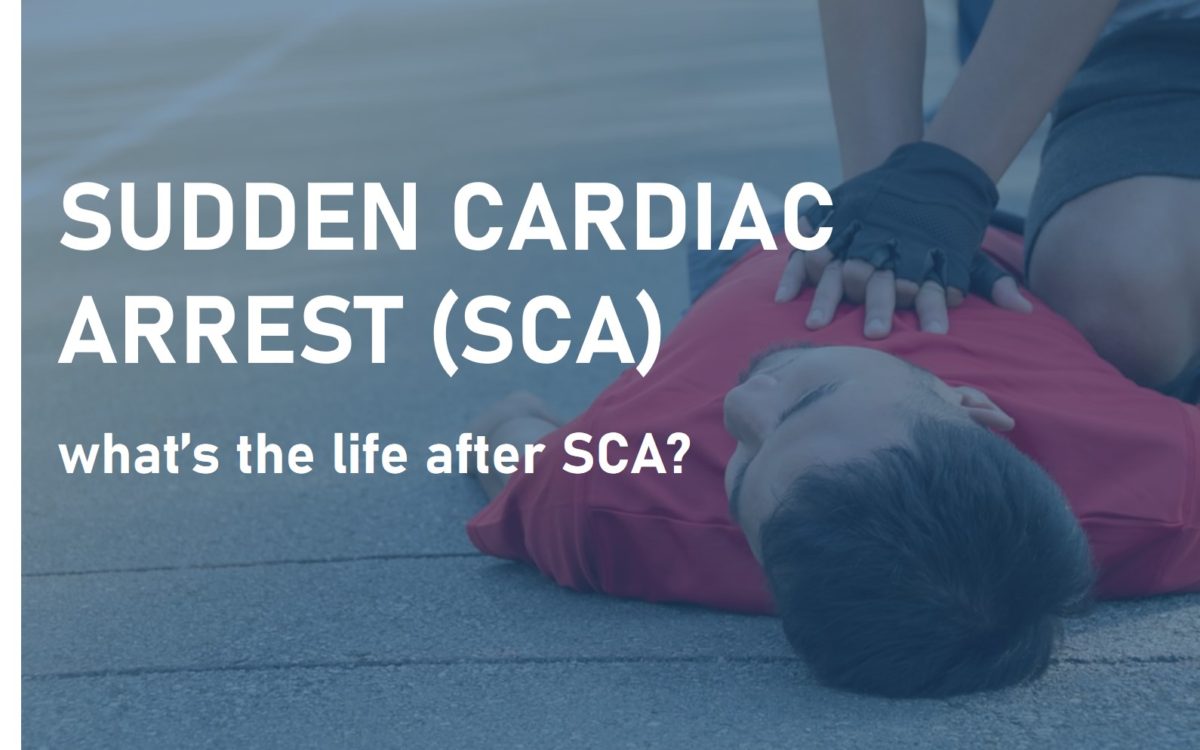Learning to thrive after a sudden cardiac arrest can be challenging. Most survivors face not only changes in their health and behavior.
Sudden Cardiac Arrest is not a heart attack
Sudden cardiac arrest occurs when the electrical system to the heart malfunctions and suddenly becomes very irregular. The heart beats dangerously fast. The heart stops beating properly. Hence the name – arrest.
The term “heart attack” is often mistakenly used to describe cardiac arrest. While a heart attack may cause cardiac arrest, the two terms don’t mean the same thing.
Did you suffer a sudden cardiac arrest (SCA)? Did your heart suddenly and unexpectedly stops beating for seconds?
You survived a sudden cardiac arrest. Someone saved your life, someone helped you with hands only CPR immediately or used a defibrillator to shock your heart back to a normal rhythm, after you collapsed.
Now learning to thrive after a sudden cardiac arrest can be a challenging journey. Remember you are not alone in this who had SCA. Most of the survivors faces changes in their health along with some other ways of thinking about life after SCA. For example:
Depression – many patients feel frightened and depressed after their cardiac arrest incident.
Phobia – gets the biggest fear that it might happen again. In reality it could happen. If you got one, you are at risk of getting another one.
Physical limitations – some patients may feel movement disorder due to pain even after weeks following SCA.
Don’t wait for the second cardiac arrest
Despite all these challenges mentioned, SCA survivors often return to their normal life. Of course, first few weeks are most critical as you are filled up with the thoughts like when you will get back to the work, when you can start exercising and what is safe and not safe to do, etc.
There are no rules to answer all these questions because time taken to recover from SCA depends on many factors of the survivor. But yes, the experience which was a little near-to-death, will make you realize now is the time to play an important role in your health.
Medications
Survivors are sent back home with some prescriptions that includes medications to prevent blood clots, protecting your heart from stress and can prevent future cardiac arrest. Some medications are to reduce the damage received by the heart. So it is important that you take these medications exactly as prescribed.
Regular Follow-ups
Discuss any signs that feel suspicious with your doctor or cardiologist regularly. Don’t just wait or do it by yourself.
Exercise and Fitness
You should start exercising that is safe for your health conditions. The intensity and duration depend on severity of your heart disease. Better you consult your cardiologist for better explanations.
SEE ALSO: In Japan, it’s a must to Exercise while at Work
Joining a survivor support group
Finding other people who’ve been through a similar experience will help you adjust, both emotionally and physically, to your new life as a survivor.
Reduce the risk factors
Quit smoking, treating high blood pressure & high cholesterol, eat right and healthy to manage your weight and cutting down the alcohol intake. These are the most known risk factors for a sudden cardiac arrest.
Apart from these you will have to manage your stress as well. Do not underestimate the stress, it can kill. The excess of stress hormones such as adrenaline into the bloodstream can increase blood pressure and encourage clotting in the arteries. This in turn cause blood clot and cardiac arrest.
Life gave you the best gift ever – a gift called “tomorrow”. Use it wisely. Now you are not a sudden cardiac arrest victim, you are a survivor. Take care of your heart and say #IAmHeartHealthy.











